Monday, 2 December
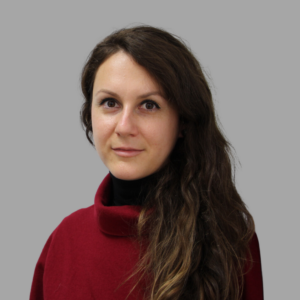
Veronika Oravcová
CEEC Director, Slovak Foreign Policy Association
Veronika Oravcová is a Research Fellow at the Slovak Foreign Policy Association and a Research Assistant at the Department of Political Science at Comenius University in Bratislava. Her research interests are centred on energy transition and energy security in Central and Eastern Europe, she is a co-editor of From Economic to Energy Transition. Three Decades of Transitions in Central and Eastern Europe (Palgrave: London, 2021), several chapters on energy transition, and several papers on Slovak energy policy.
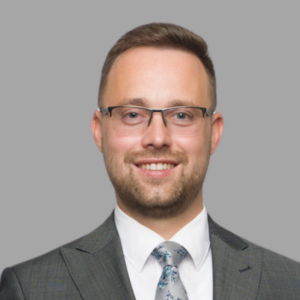
Szabolcs Hodosy
State Secretary, Ministry of Economy of the Slovak Republic
Szabolcs Hodosy is State Secretary at the Ministry of Economy of the Slovak Republic. He is mainly involved in the matter related to energy and regulation, in which he has the extensive experience. Before joining the ministry, Mr Hodosy held the position of Vice-Chairman of the Regulatory Office for Network Industries (ÚRSO), where he worked for more than four years.
Mr Hodosy holds a Master's degree in law from Comenius University in Bratislava. He started working in the energy sector right after finishing his studies. In the company Západoslovenská distribučná, a.s., he worked as a teamleader of the management support team from 2007. Later, he moved to the position of Head of Investment Management, where he was responsible notably for managing the preparation and implementation of major investment projects, optimization of the investment process, and integrated management. He took up the position of Vice-Chairman of ÚRSO in September 2020.
Chair
Zuzanna Nowak, Analysis Director, The Opportunity Institute of Foreign Affairs

Zuzanna Nowak
Analysis Director, The Opportunity Institute of Foreign Affairs
Zuzanna Nowak is an Analysis Director at the Opportunity Institute for Foreign Affairs and energy and a climate policy analyst. Expert of the Ignacy Lukasiewicz Institute for Energy Policy. Previously she worked as a senior energy and climate analyst within the Global Issues Programme in the Polish Institute of International Affairs. She graduated from the Paris School of International Affairs at Sciences Po Paris and the College of Europe in Bruges. She concentrates her research mainly on multilateral climate diplomacy, energy security issues and post-Soviet countries. She also held analytical, managerial, and international cooperation positions at the Polish Oil and Gas Company and, before that, at the Polish National Centre for Nuclear Research as well as the Polish Member Committee of the World Energy Council.
Speakers
Petr Brzezina, President, Westinghouse Czech Republic

Petr Brzezina
President, Westinghouse Czech Republic
Petr Brzezina is an experienced leader in the energy and construction industries. On February 13, 2023, he was appointed President of Westinghouse Electric Company in the Czech Republic. Brzezina has held senior positions at several multinational companies, including Škoda Transportation, Alstom, OHL ZS, General Electric, and ABB. In 2021, Forbes recognized him as one of the top Czech CEOs of the year. At Westinghouse, he focuses on advancing nuclear technology in the Czech Republic, with the goal of enhancing regional energy security. Previously, Westinghouse, in partnership with Bechtel, submitted a proposal to build an AP1000 reactor at the Dukovany Nuclear Power Plant.
Andrei Goicea, Policy Director, nucleareurope
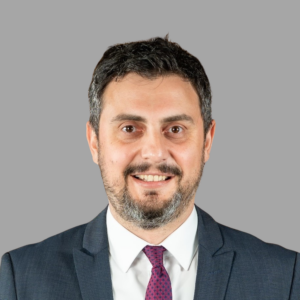
Andrei Goicea
Policy Director, nucleareurope
Andrei Goicea graduated in 2002 from both the University Politehnica of Bucharest - Faculty of Power Engineering as a nuclear engineer and the “Spiru Haret” University, Marketing and Foreign Trade Faculty as economist. He is also holding a master at the University Politehnica of Bucharest - Faculty of Power Engineering in nuclear safety and radiological protection from 2003.
Starting with May 2015 he is at nucleareurope (formerly named FORATOM), currently holding the Policy Director position, after he previously worked at Nuclearelectrica – Romania (2003 – 2013) and Mochovce Units 3 and 4 Project in Slovakia (2013-2015). From his current position he is dealing with European policy matters with impact on the nuclear sector.
Karel Katovský, Associate professor, Faculty of Electrical Engineering and Communication, Brno University of Technology
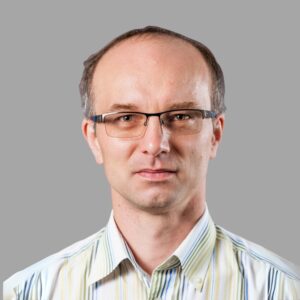
Karel Katovský
Associate professor, Faculty of Electrical Engineering and Communication, Brno University of Technology
Karel Katovský graduated from the Czech Technical University in Prague in Nuclear Engineering in 2001. In his diploma as well as dissertation thesis, he focused on accelerator-driven subcritical systems for the transmutation of spent nuclear fuel. Since 2005, he has worked as an assistant professor at the Department of Nuclear Reactors of the Czech Technical University in Prague. From 2008 to 2012, he worked as a researcher at the Physics Computations department of ŠKODA JS, plc. at a detached workplace at the Dukovany Power Plant. Since 2011, he has been working at the Department of Electrical Power Engineering of the Brno University of Technology. He initiated the establishment of the interdisciplinary master's degree program called Nuclear Power Engineering. At BUT, he is also the coordinator of cooperation with thirteen foreign universities and companies, e.g. with Texas A&M University, Yerevan State University, the Institute of Modern Physics, Lanzhou, Uzhhorod National University, and KEPCO International Nuclear Graduate University. Together with Professor Juyoul Kim, dean at this university, he initiated the establishment of a Czech-Korean Nuclear Cooperation Center, the educational and training center to prepare professionals for the support of the construction of new units 5 and 6 of the Dukovany power plant.
Christian Di Lizia, Senior Business Developer, Electricity of France (EDF)

Christian Di Lizia
Senior Business Developer, Electricity of France (EDF)
Christian Di Lizia is a seasoned professional in the nuclear energy sector with over two decades of experience spanning engineering, project management, international development, and advocacy. Currently serving as Senior Business Developer at EDF's International New Nuclear Development Division, he leads nuclear program development in Latin America, Slovakia, and Serbia. He also manages strategic relations with global organizations such as the IAEA, OECD-NEA, and WNA.
Christian has driven key initiatives, including EDF's engagement with international multilateral agencies and the development of nuclear roadmaps in prospective countries. His work focuses on creating robust frameworks for nuclear energy adoption, including supply chain enhancement and competence building.
Previously, Christian has held diverse roles at EDF, ranging from process transformation in nuclear engineering to interface management for the Hinkley Point C project. Notable achievements include rationalizing engineering processes, improving interface resolution times, and driving knowledge-sharing platforms for new nuclear projects.
Earlier in his career, Christian was seconded to Slovenské Elektrárne as a Project Leader, where he achieved operational savings through radioactive waste management optimization and reduced outage durations by implementation of work management best practices. At WANO Paris Centre, he led over 20 international peer review missions, fostering global safety and reliability standards for nuclear plants.
Christian holds a degree in Aerospace Engineering from the University of Rome “La Sapienza,” where he also contributed to the development of propulsion technologies. Passionate advocate for nuclear energy, Christian's strategic vision and leadership underscore his commitment to advancing safe, efficient, and innovative nuclear energy solutions worldwide.
Miroslav Šarišský, Managing Director for Slovakia, newcleo
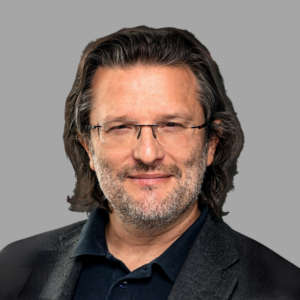
Miroslav Šarišský
Managing Director for Slovakia, newcleo
Miroslav Šarišský is the Managing Director for Slovakia at newcleo, a European company based in Paris, leading the design and development of next-generation (Generation IV) advanced modular nuclear reactors.
Prior to joining newcleo, Miroslav held several senior positions at Slovenské elektrárne, where he gained extensive expertise in human resources, organizational management, corporate social responsibility, environmental and energy efficiency initiatives, government and international relations, communications, and sustainable development.
Throughout his career, Miroslav has also held leadership roles in notable institutions, including the American Bar Association, the Central and East European Law Initiative, the Parliament of the Slovak Republic, and the National Bank of Slovakia. He served on the presidiums of both the National Union of Employers (RUZ) and the Association of Employers Unions and Associations (AZZZ).
Miroslav was instrumental in founding the Fund for Transparent Slovakia and the Rule of Law Initiative in Slovakia.
Tomáš Šimovič, Business Development Manager, Slovenské elektrárne
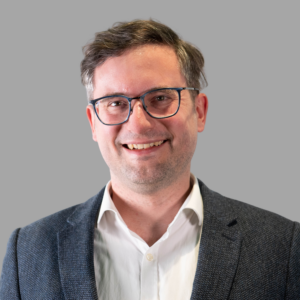
Tomáš Šimovič
Business Development Manager, Slovenské elektrárne
Tomáš Šimovič is a graduate of the Czech Technical University in Prague, with an MSc. in technical cybernetics, and Ecole nationale supérieure de techniques avancées (ENSTA) in Paris. After a brief stint as a free-lance consultant in mathematical modelling he joined Electricté de France (EdF) in Paris, where he worked on mathematical optimization models (2009-2013) and risk management and valuation (2016-2017). He also worked at Sapient Global Markets in London (2013-2015) as a consultant in commodity trading. In 2018 he joined the trading department of SPP in Bratislava as a senior analyst supporting prop and portfolio trading. In 2019, he joined Slovenské elektrárne, where he was in charge of quantitative support for asset optimization and led various development initiatives. Since February 2024, he has been working as a Business Development Manager responsible for SE development projects.
Q&A
Chair
Richard Kvasňovský, Executive Director, Slovak Gas and Oil Association
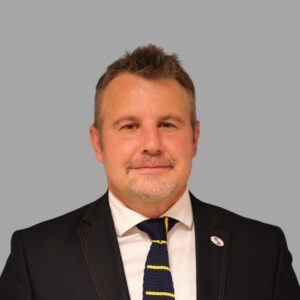
Richard Kvasňovský
Executive Director, Slovak Gas and Oil Association
Richard Kvasňovský has spent the majority of his professional career in public service media. From 1998 to 2007, he worked at Slovak Radio, where he rotated through the international affairs department and the domestic editorial team. There, he served as an editor and host for news and discussion programs. Since 2009, he has been with the TASR news agency, where he served as the head of the domestic editorial team and a member of the TASR Board of Directors. He has received several journalistic awards for his work. Since June 2019, he has been the executive director of the Slovak Gas and Oil Association.
Speakers
Csaba Marosvári, Deputy State Secretary for Energy Security of Hungary
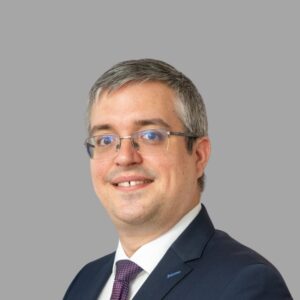
Csaba Marosvári
Deputy State Secretary for Energy Security of Hungary
Csaba Marosvári is Hungary’s Deputy State Secretary for Energy Security since June 2023. Prior to his current role he worked nearly 10 years in the Hungarian natural gas industry dealing with gas wholesale business development in Central and Eastern Europe (CEE), natural gas supply strategy and diversification of natural gas supply sources and routes in the CEE region’s turbulent geopolitical and natural gas supply situation experienced since 2014. Most of this experience he gained at the Hungarian national energy conglomerate MVM Group where he participated in the Group’s gas wholesale market expansion in the CEE region, its efforts to diversifying gas supply sources and routes as well as its entering new business fields such as LNG and upstream. Mr Marosvári contributed to the signing of new long term supply contract with Gazprom in 2021 and LNG supply contracts for Krk LNG terminal in 2020 that are the cores of Hungary’s gas supply in this decade. Having received multiple corporate awards and recognitions for his work, in 2023 he received MVM Group’s highest professional award, MVM Prima. He has also published articles about the commercial and geopolitical aspects of natural gas supply and has been a welcomed speaker at international and domestic natural gas industry conferences. He received his undergraduate degree from Corvinus University of Budapest (Hungary) and his Master’s degrees from University of North Carolina at Chapel Hill (USA) and Hult International Business School - Shanghai Campus (USA-based).
Rastislav Ňukovič, General Director, eustream

Rastislav Ňukovič
General Director, eustream
Rastislav Ňukovič studied at the Faculty of Electrical Engineering and Informatics at the Slovak University of Technology in Bratislava. From 2000 to 2002, he completed postgraduate studies specializing in the gas industry at the Faculty of Environmental Technology at the University of Chemistry and Technology in Prague. His career in the gas industry began in 1998 in the Slovtransgas division of SPP, where he served as an IT systems administrator and later became the head of the Data Collection and Technical Support Department. From 2005 to 2008, he worked as the Director of Centralized Maintenance, and over the following four years, he served as the Director of Strategic Projects. Since July 1, 2014, he has been the CEO of EUSTREAM. He is a long-standing member of the Executive Committee of the Technical Association of the European Gas Industry (Marcogaz). Since September 2022, he has been serving as the President of the Slovak Gas and Oil Association (SPNZ).
Juraj Paluš, Associate, Taylor Wessing
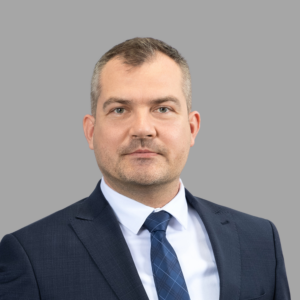
Juraj Paluš
Associate, Taylor Wessing
Juraj Paluš is an associate at Taylor Wessing Bratislava, where he is a member of the Corporate/M&A, Capital Markets, and Restructuring & Insolvency teams. He possesses profound knowledge in the field of energetics and specializes in all areas of corporate law and provides expert advice to both national and international clients on corporate recovery matters.
Before joining Taylor Wessing in 2024, Juraj held several significant positions, including senior supervision position at Slovenské elektrárne, with direct responsibility to the Ministry of Economy of the Slovak Republic (2021-2023), head of procurement at Bratislavská vodárenská spoločnosť (2020), and head of legal support for trade at Slovenský plynárenský priemysel (2019-2020). His career at Slovenský plynárenský priemysel also included roles as lawyer and strategic purchaser from 2011 to 2019. Juraj began his professional journey as a law clerk in law firm in Bratislava (2009-2011).
Juraj holds a doctorate from Pan-European University (2011) and completed his legal studies at Comenius University (2004-2009).
Agata Łoskot-Strachota, Senior Fellow, Centre for Eastern Studies (OSW)
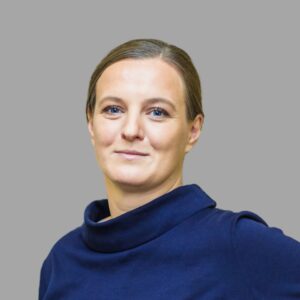
Agata Łoskot-Strachota
Senior Fellow, Centre for Eastern Studies (OSW)
Agata Łoskot-Strachota is the Coordinator of the Energy in Europe project. Over the past few years, she has coordinated OSW's research on the European gas market and served as a senior research fellow specializing in European Union energy policy. Prior to this, her focus was on oil and gas issues in the Caspian region.
She has participated in several EU and regional research projects, including POLINARES, the Strategic Foresight Conversation on the Future of the EU and Ukraine 2035, and the V4ETTP consortium of Visegrad Group think tanks. She regularly collaborates with Polish, EU, and regional think tanks, including the Polish Economic Institute and within the Think Visegrad platform.
Until recently, she was a visiting fellow at the Bruegel think tank, a position she held until spring 2024. She also contributes as an external expert to the Green Deal Ukraina project. Furthermore, she is a member of the Polish Expert Council on Energy Security and Climate, as well as the Working Group on European Energy Security at CEPA.
Q&A
Making the Green Deal Relevant and Engaging in Central Europe
The European Green Deal aims to transform the EU into a climate-neutral economy by 2050. However, in Central Europe, where economic structures, energy dependencies, and public perceptions differ significantly from Western Europe, the Green Deal can sometimes feel abstract or disconnected from local priorities. This panel will explore how to make the Green Deal more relatable and appealing to Central European stakeholders, including governments, businesses, and citizens. How can policymakers tailor Green Deal initiatives to resonate with the specific challenges and opportunities of Central European countries? What role can industry, innovation, and local communities play in this transition? How can we ensure that green policies are both economically viable and socially inclusive, addressing concerns around job security and competitiveness?
Chair
Zsolt Gál, Assistant Professor, Comenius University in Bratislava
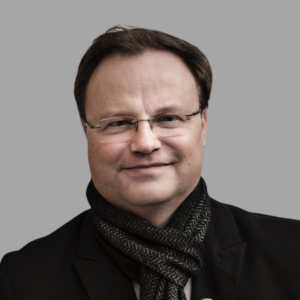
Zsolt Gál
Assistant Professor, Comenius University in Bratislava
Zsolt Gál is assistant professor at the Department of Political Science, Faculty of Arts at Comenius University in Bratislava. He holds an MA degree in Political Science from the department and a PhD degree in Economics from Corvinus University in Budapest, Hungary. His research interests include public finances, economic aspects of European integration, economic transformation in Central and Eastern Europe and international migration. He teaches several courses in these fields at Comenius University. He is the author of the bookThe 2007–2009 financial crisis: what went wrong and what went different? (2011) and his work has been published in several edited volumes and academic journals. Recently, he contributed a chapter („From Economic Transformation to Energy Transition: The Legacy of Thirty Years of Post-Communist Development") to the volume From Economic to Energy Transition. Three Decades of Transitions in Central and Eastern Europe, edited by Matúš Mišík and Veronika Oravcová and published by Palgrave Macmillan in 2021.
Speakers
Veronika Oravcová, CEEC Director, Slovak Foreign Policy Association

Veronika Oravcová
CEEC Director, Slovak Foreign Policy Association
Veronika Oravcová is a Research Fellow at the Slovak Foreign Policy Association and a Research Assistant at the Department of Political Science at Comenius University in Bratislava. Her research interests are centred on energy transition and energy security in Central and Eastern Europe, she is a co-editor of From Economic to Energy Transition. Three Decades of Transitions in Central and Eastern Europe (Palgrave: London, 2021), several chapters on energy transition, and several papers on Slovak energy policy.
Oldřich Sklenář, Research Fellow, AMO

Oldřich Sklenář
Research Fellow, AMO
Oldřich Sklenář is an analyst at AMO, where he is a member of the climate team. He specializes in energy issues and greenhouse gas production. He graduated in Energy and Process Equipment from the Brno University of Technology and in Environmental Studies from Masaryk University. Additionally, he completed a study internship at Vrije Universiteit Brussel. He began his professional career as a designer in the energy sector. He then worked for several organizations, including non-governmental ones, focusing on the development of renewable energy sources and energy management. The largest part of his career has been spent in a managerial role in the development and production of electrical machinery. In addition to AMO, he also works as a consultant as part of the Climate Facts project.
Agata Łoskot-Strachota, Senior Fellow, Centre for Eastern Studies (OSW)

Agata Łoskot-Strachota
Senior Fellow, Centre for Eastern Studies (OSW)
Agata Łoskot-Strachota is the Coordinator of the Energy in Europe project. Over the past few years, she has coordinated OSW's research on the European gas market and served as a senior research fellow specializing in European Union energy policy. Prior to this, her focus was on oil and gas issues in the Caspian region.
She has participated in several EU and regional research projects, including POLINARES, the Strategic Foresight Conversation on the Future of the EU and Ukraine 2035, and the V4ETTP consortium of Visegrad Group think tanks. She regularly collaborates with Polish, EU, and regional think tanks, including the Polish Economic Institute and within the Think Visegrad platform.
Until recently, she was a visiting fellow at the Bruegel think tank, a position she held until spring 2024. She also contributes as an external expert to the Green Deal Ukraina project. Furthermore, she is a member of the Polish Expert Council on Energy Security and Climate, as well as the Working Group on European Energy Security at CEPA.
Borbála Takácsné Tóth, Senior Analyst, Regional Centre for Energy Policy Research
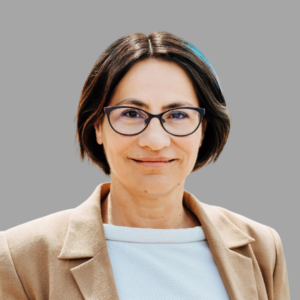
Borbála Takácsné Tóth
Senior Analyst, Regional Centre for Energy Policy Research
Borbála Takácsné Tóth has worked with the Regional Centre for Energy Policy Research (REKK) since its creation in 2004. With REKK she has been leading several international and national consultancy projects, with many using the European Gas Market Model as the primary analytic tool. Her main fields of expertise include: regional co-operations; security of supply issues; energy geopolitics; major infrastructure initiatives in the gas sector and incentives for investments; competition cases in the gas market; and the effect of gas release programs on competition in the gas market in Europe.
She recently (2023) defended her PhD thesis at the International Relations and Security Studies program at the Corvinus University of Budapest. In 2001 she received an M.A. in International Relations and European Studies at the Central European University in Budapest. Borbala was educated as an economist and received her degree from the Budapest University of Economic Sciences in 1998. She spent 5 years as a civil servant in government administration mostly in the field of energy regulation. Between 2001 and 2003 she was Head of the President's Secretariat responsible for international relations of the Hungarian Energy Office.
Poland will hold the Presidency of the Council of the European Union starting in January 2025. The Polish Presidency comes at a time when the EU is facing several critical challenges that will shape its future. Among the most pressing issues are the energy and digital transitions, which are vital for enhancing Europe’s competitiveness and sustainability. Special session will focus on key questions that will guide Poland’s leadership within the EU and its contributions to shaping long-term strategies. What are Poland’s specific priorities regarding climate and energy policy? How does the country intend to address the balance between energy security, sustainability, and the economic interests of member states during its presidency? How do other countries, such as Slovakia view the priorities?
Chair
Eva Mihočková, Editor in Chief, zahranicnapolitika.sk (SFPA)

Eva Mihočková
Editor in Chief, zahranicnapolitika.sk (SFPA)
Eva Mihočková is Editor in Chief of zahranicnapolitika.sk (Foreign Policy), a media website operated by the Slovak Foreign Policy Association. She also works as an investigative journalist for Stop the Corruption Foundation in Slovakia and Visegrad Insight Fellow. She was awarded the Journalism Award in 2022 by the Open Society Foundation. Eva started her journalistic career in 1998 at Slovak Television. Since then, she has worked for major news outlets such as TA3 television, RTVS public broadcaster, Euractiv.sk, Plus7dní weekly, and Trend weekly, where she served as a reporter, moderator, and a member of the editorial office management team.
Speaker
Krzysztof Bolesta, Secretary of State, Ministry of Climate and Environment of the Republic of Poland
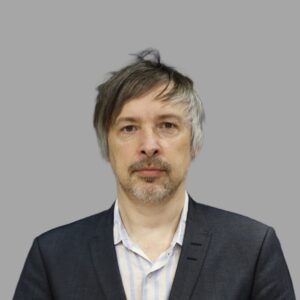
Krzysztof Bolesta
Secretary of State, Ministry of Climate and Environment of the Republic of Poland
Krzysztof Bolesta is an appointed official of the European Commission, where he worked from 2004 to 2012 and from 2020 to 2024. From 2000 to 2004, he supported the accession negotiations and Poland's adaptation to EU requirements in the areas of 'energy' and 'research and development'. Between 2012 and 2015, he was a member of the political cabinet of two Polish Ministers of the Environment and a member of the supervisory board of the provincial branch of the National Fund for Environmental Protection and Water Management in Lublin. He was involved in the negotiation regarding the second European energy and climate change package. In addition, he served as an advisor to the President COP19 (United Nations Climate Change Conference). From 2016 to 2018, he was a research director at the Policy Insight think tank. Moreover, he co-founded the NGO, the Foundation for the Promotion of Electric Vehicles, where he served as vice-president from 2018 to 2020. He participated in two Euro-Atlantic exchange programmes, the US State Department's International Leadership Programme and the German-American Marshall Fund programme. In 2014, the President of the Republic of Poland awarded him the Silver Cross for services to strengthen and develop European integration.
Q&A
In this panel a country review of Energy Policy in the Slovak Republic will be presented. This review is designed to offer a detailed examination of the Slovak energy sector, providing key insights and findings derived from a thorough analysis. The objective is to highlight the current state of energy policies, evaluate their effectiveness, and identify areas for improvement.
Chair
Artur Bobovnický, Director of the Innovation and International Cooperation Section, Slovak Innovation and Energy Agency
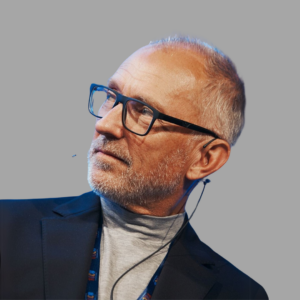
Artur Bobovnický
Director of the Innovation and International Cooperation Section, Slovak Innovation and Energy Agency
Artur Bobovnický is a seasoned expert in innovation and energy. He graduated from the Slovak University of Technology in Bratislava in 1984 with a major in Thermal and Nuclear Power Engineering and defended his PhD thesis there in 1989. With extensive experience as a consultant and in top management, Artur has developed a broad understanding of various topics. He is a sought-after speaker and moderator for panel discussions both in Slovakia and internationally. From 2014 to 2020, he represented Slovakia in the IEA REWP and TCP SHC. He continues to engage in several international projects funded by EU framework programs such as Horizon Europe, Life, DEP, Erasmus+, and regional Interreg programs. Artur is also a jury member for the Innovation Fund of Serbia's Minigrants program, and similar initiatives in Poland and the SASPRO program in Slovakia. Additionally, he serves on the Industry Board of the Faculty of Electrical Engineering at the Slovak University of Technology in Bratislava.
Speakers
Mary Burce Warlick, Deputy Executive Director, International Energy Agency
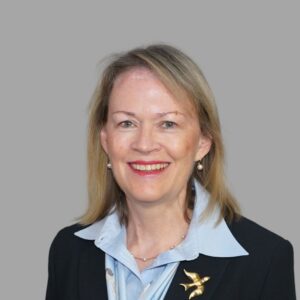
Mary Burce Warlick
Deputy Executive Director, International Energy Agency
Mary Burce Warlick is the Deputy Executive Director of the International Energy Agency (IEA). A retired career diplomat and former U.S. Ambassador to Serbia, Ms. Warlick has held a variety of senior leadership positions at the U.S. Department of State, National Security Council and Department of Defense, serving in Washington and abroad. From 2014-2017 she served as the State Department's Principal Deputy and Acting Special Envoy for International Energy Affairs and represented the U.S. on the IEA Governing Board.
Ms. Warlick holds a B.A. in Political Science and an M.A. in Law and Diplomacy.
Szabolcs Hodosy, State Secretary, Ministry of Economy of the Slovak Republic

Szabolcs Hodosy
State Secretary, Ministry of Economy of the Slovak Republic
Szabolcs Hodosy is State Secretary at the Ministry of Economy of the Slovak Republic. He is mainly involved in the matter related to energy and regulation, in which he has the extensive experience. Before joining the ministry, Mr Hodosy held the position of Vice-Chairman of the Regulatory Office for Network Industries (ÚRSO), where he worked for more than four years.
Mr Hodosy holds a Master's degree in law from Comenius University in Bratislava. He started working in the energy sector right after finishing his studies. In the company Západoslovenská distribučná, a.s., he worked as a teamleader of the management support team from 2007. Later, he moved to the position of Head of Investment Management, where he was responsible notably for managing the preparation and implementation of major investment projects, optimization of the investment process, and integrated management. He took up the position of Vice-Chairman of ÚRSO in September 2020.
Kieran McNamara, Policy Analyst, International Energy Agency

Kieran McNamara
Policy Analyst, International Energy Agency
Kieran McNamara is an energy policy expert with over two decades of experience in the sector. Since 2007, he has served as a Policy Analyst at the International Energy Agency (IEA), specializing in international relations, energy, and climate. His work focuses on advancing sustainable energy policies and fostering global collaboration to address climate challenges. Previously, Kieran spent eight years as a Senior Analyst and Manager at the Commission for Reglation of Utilities (CRU), where he played a key role in shaping regulatory frameworks and driving strategic initiatives in the utilities sector.
He holds a Master’s in Economics from Trinity College Dublin and a Bachelor of Commerce from
the University of Galway.
Q&A
The Roundtable discussion will be held in the Slovak language without interpretation.
Chair
Katarína Nikodemová, Director, Buildings for the Future
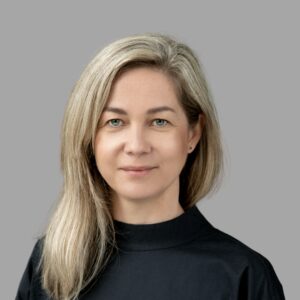
Katarína Nikodemová
Director, Buildings for the Future
Katarína Nikodemová has been working for more than 5 years as the director of Buildings for the Future, an organization that focuses on shaping public policies to promote quality construction and renovation of buildings in terms of energy efficiency, indoor environmental quality and sustainability. She has extensive experience in advocacy, campaigning, policy, media work and project management. He also has experience of editorial work, project work and working for the European institutions. She is a graduate of Palacký University in Olomouc, where she holds Master's degrees in Political Science, European Studies and Public Administration in a Cross-Cultural Environment. She has also studied abroad (USA, Spain and Sweden) with the support of European programmes. She excels in organizational skills, strategic thinking and the ability to coordinate teams for meaningful collaborations across sectors.
Speakers
Jana Bendžalová, Energy Expert, ENBEE and Buildings for the Future
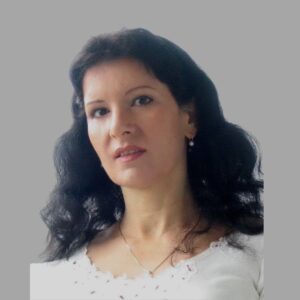
Jana Bendžalová
Energy Expert, ENBEE and Buildings for the Future
Jana Bendžalová is a professionally qualified person for energy certification of buildings. Until 2016 she worked as the head of the Department of thermal protection and energy of buildings in the Technical Testing Institute of Construction, n.o. on national projects aimed at the implementation of the Directive on the Energy Performance of Buildings into the Slovak legislation and to support the renovation of buildings. She has collaborated on several international projects for the implementation of energy certification of buildings in the EU and outside the EU, the introduction of new aspects of energy certificates and the calculation of cost-optimal minimum requirements for buildings. She is active in the development of European technical standards for the energy performance of buildings. She has authored and co-authored several articles and publications. She is currently the head of ENBEE Ltd., a company that cooperates with national and international organizations on projects in the field of energy efficiency in buildings.
Marián Kupec, Energy Expert, Bratislava Self-Governing region
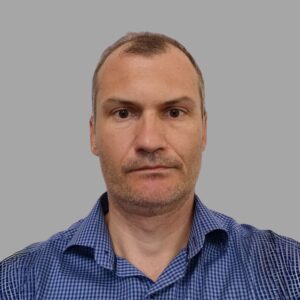
Marián Kupec
Energy Expert, Bratislava Self-Governing region
Marián Kupec is an expert in the field of energy and project management with many years of experience in the energy services sector. He is currently working as an analyst/energy expert at the Bratislava Self-Governing Region, where he focuses on energy data collection and processing, design of building renovation and preparation of projects financed from European funds. He has experience from various positions, including project manager at Slovenske elektrárny, where he managed energy saving projects and energy services for companies and municipalities. He studied at the University of Economics in Bratislava, where he obtained a degree in business management, and has completed a number of professional trainings in the field of energy, thermal energy, photovoltaics and public procurement. He holds certificates in climate-energy management and thermal energy, as well as other professional certificates. His practice contributes to improving energy efficiency and sustainability in the public and business sectors.
Martina Repíková, Energy Expert, Union of Slovak Cities
Martina Repíková
Energy Expert, Union of Slovak Cities
Martina Repíková cooperates with the Union of Slovak Cities as an energy advisor. She focuses on promoting decarbonisation, energy management, developing climate and energy strategies, reducing carbon footprint and increasing energy efficiency.
In the long-standing tradition of the CEEC, the International Energy Agency (IEA) will present key findings from its annual World Energy Outlook (WEO) report. This report provides critical, objective analysis and insights on global energy demand and supply trends, along with their implications for energy security, environmental protection, and economic development.
Chair
František Ružička, Ambassador, Permanent Representative of the Slovak Republic to the OECD
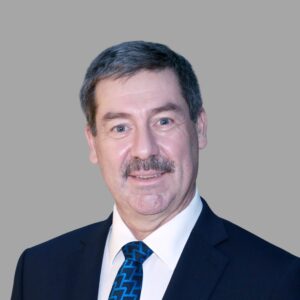
František Ružička
Ambassador, Permanent Representative of the Slovak Republic to the OECD
Ambassador František Ružička took up his duties as the Permanent Representative of the Slovak Republic to the OECD in November 2020. Prior served as the State Secretary of the Ministry of Foreign and European Affairs from 2018 onwards. František Ružička was appointed Director of the Office of H.E. Miroslav Lajčák, during the Presidency of the 72nd session of the UN General Assembly in New York, from 2017 to 2018. He was Ambassador to the United Nations in New York from 2012 to 2017, Ambassador to the Republic of Poland from 2005 to 2010. František Ružička served in numerous leadership roles at the Ministry of Foreign and European Affairs of the Slovak Republic and abroad — Washington, Prague. H. E.
František Ružička graduated from the Moscow State Institute of International Relations and Charles University in Prague with PhD in Philosophy.
Speaker
Mary Burce Warlick, Deputy Executive Director, International Energy Agency

Mary Burce Warlick
Deputy Executive Director, International Energy Agency
Mary Burce Warlick is the Deputy Executive Director of the International Energy Agency (IEA). A retired career diplomat and former U.S. Ambassador to Serbia, Ms. Warlick has held a variety of senior leadership positions at the U.S. Department of State, National Security Council and Department of Defense, serving in Washington and abroad. From 2014-2017 she served as the State Department's Principal Deputy and Acting Special Envoy for International Energy Affairs and represented the U.S. on the IEA Governing Board.
Ms. Warlick holds a B.A. in Political Science and an M.A. in Law and Diplomacy.
Q&A
How do existing gender disparities affect the ability to absorb the financial and social pressures of rising living costs? What specific challenges do women face in managing energy poverty compared to men? How can policy responses better address the intersection of gender and economic vulnerability in crisis contexts?
Speaker
Mariëlle Feenstra, Co-Founder and Scientific Director, 75inQ

Mariëlle Feenstra
Co-Founder and Scientific Director, 75inQ
Mariëlle Feenstra is co-founder and scientific director of 75inQ, the Institute on gender and energy promoting more visibility for diversity in the energy transition. After 15 years as a policy advisor for municipalities in the Netherlands, she returned to academia with her PhD project “Gender Just Energy Policy: engendering the energy transition in Europe” graduated in 2021 at University Twente, the Netherlands. She has been working on gender and energy since 2000. Her contribution as a gender-energy pioneer has been acknowledged both in academia and in practice by invitations to participate in policy formulation activities for the European Union and the United Nations.
Q&A
Electrification is the key to a successful energy transition. It is necessary to electrify all segments of the economy, while simultaneously increasing the share of electricity produced from renewable energy sources and ensuring its reliable transmission to consumers. A fundamental challenge for the energy transition is the technological modernization of transmission and distribution networks, which must be flexible—capable of absorbing varying amounts of electricity generated from many sources at different times. How quickly can the modernization of electricity networks be achieved to meet the needs of the energy transition? What will modernization, digitization, and new standards bring for network operators and consumers?
Chair
Maciej Jakubik, European Programme Coordinator, Forum Energii
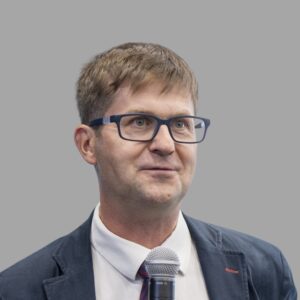
Maciej Jakubik
European Programme Coordinator, Forum Energii
Maciej Jakubik specializes in shaping public policies, especially European policies in energy and climate areas and issues related to the EU decision-making. He has worked on the development of the European energy and gas markets, ETS and energy security issues. In recent years, he has worked in Polskie Sieci Elektroenergetyczne and Central Europe Energy Partners in Brussels. He has taken an active part in the EU legislative processes and participated in many working and expert groups of the EC and ENTSO-E. In the past, he was associated with public administration and diplomacy in, among others, the Ministry of Foreign Affairs, the Ministry of Development and the Chancellery of the President.
He is a graduate of political science at the University of Warsaw and European studies at the College of Europe in Natolin. He also completed postgraduate studies in energy at the Warsaw School of Economics and energy market training courses at the Florence School of Regulation and the Energy Delta Institute.
Speakers
Lívia Vašáková, Director, Corporate Development and Public Affairs, ZSE Group
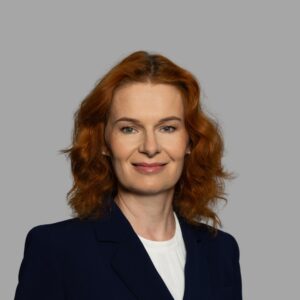
Lívia Vašáková
Director, Corporate Development and Public Affairs, ZSE Group
Lívia Vašáková works in the energy sector as the Director of the Division for Corporate Development and Public Relations of the ZSE Group. She is the former Director General of the Recovery Plan Section at the Office of the Government of the Slovak Republic, where she prepared the Slovak Recovery Plan and introduced an efficient system of its implementation, which has already brought Slovakia more than a third of the allocation and placed it among the fastest performing EU countries. From 15 May 2023, she held the post of Deputy Prime Minister for the Slovak Recovery and Resilience Plan and the use of EU funds in the bureaucratic government of Ľudovít Ódor, where she streamlined the use of EU funds and proposed improvements to the system of their use. Previously, she headed the Economic Analysis Section at the Representation of the European Commission in Slovakia and worked at the Directorate General for Energy at the European Commission in Brussels. Since 2024 she has been a member of the RÚZ Presidium.
Andrej Juris, Head of ECRB Unit, Energy Community
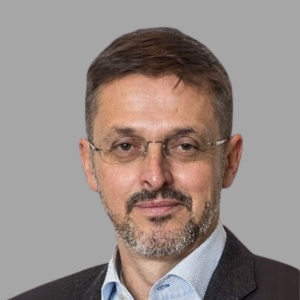
Andrej Juris
Head of ECRB Unit, Energy Community
After graduating at the Slovak Technical University in 1988, Andrej Juris worked on the construction of the Mochovce nuclear power plant. Subsequently he joined the Antimonopoly Office, where he worked in the enforcement of competition policies. In 1994, he co-founded the Centre for Economic Development with the aim to support independent analysis of the economic policy in Slovakia. After graduation from the MPA program in Princeton University in 1997, he continued to work on international energy-related projects for the US-based consulting company NERA. Between 2004 and 2019 he worked at Západoslovenská energetika, first as the Director in charge of energy strategy and regulation, and from 2007 as the Chairman of the Board of Directors of the largest electricity distribution system operator in Slovakia. In 2008 he complemented his education with the MBA degree at the Jacobs University in Germany. In 2020 he was appointed as the Chairman of URSO, the Slovak national energy and water regulatory agency, where he led efforts to integrate the Clean Energy Package for All Europeans in the energy regulatory framework and policies in Slovakia.
Since March 2024 he assumed his current role at the Energy Community Secretariat in coordinating and supporting activities of the Energy Community Regulatory Board. He is the author of several publications in the field of energy sector regulation and liberalization, and he regularly speaks at professional events.
Martin Pitorák, Director, Department of Fuels and Energy, Ministry of Economy of the Slovak Republic
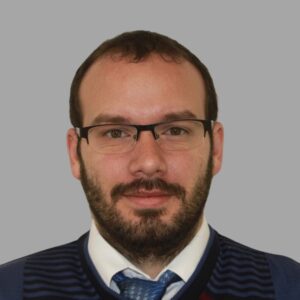
Martin Pitorák
Director, Department of Fuels and Energy, Ministry of Economy of the Slovak Republic
Martin Pitorak was born in 1981 in Košice, Slovakia. He completed his education at the Faculty of Arts at Comenius University in Bratislava. Since 2007, he has been employed in the International Relations in Energy Department of the Ministry of Economy of the Slovak Republic, where his primary responsibilities have involved managing the EU agenda in the fields of renewable energy and energy infrastructure. Between 2013 and 2019, he served as the energy attaché at the Permanent Representation of the Slovak Republic to the EU in Brussels. In 2019, he was appointed Director of the Energy and Fuels Department, where he has overseen the legal framework and policy initiatives related to the electricity market, gas market, heating sector, and biofuels. He also contributed to the preparation of the Recovery and Resilience Plan – Component 1: Renewable Energy and Energy Infrastructure.
Q&A
Tuesday, 3 December
Chair
Kateřina Chajdiaková, Director, Slovak Climate Initiative

Kateřina Chajdiaková
Director, Slovak Climate Initiative
Kateřina Chajdiaková is the Director of the Slovak Climate Initiative, where she leads efforts in energy transformation and climate policy. With a strong background in environmental and energy legislation, she has worked across various NGOs, addressing pressing environmental issues through policy initiatives. Her work prioritizes enhancing energy efficiency, particularly within the building sector, and she has actively advocated for sustainable construction and renovation as central to Slovakia's climate goals. Holding a degree in biochemistry from the Faculty of Natural Sciences, she combines her practical skills in organizational development and advocacy with extensive experience on both national and international projects. Her approach emphasizes the positive impacts of climate transformation, focusing on creating effective and impactful strategies.
Speakers
Šimon Lacena, Director, Climate Change Mitigation Department, Ministry of Environment of the Slovak Republic

Šimon Lacena
Director, Climate Change Mitigation Department, Ministry of Environment of the Slovak Republic
Šimon Lacena is a director at the Climate Change Mitigation Department at the Ministry of Environment of the Slovak Republic, where he is in charge of implementing and monitoring climate and energy-related policies of the EU and preparing the first national Climate Act of the Slovak Republic, which sets the climate neutrality target for 2050. He previously served as a Senior State Advisor at the Ministry of Environment of the Slovak Republic. He also completed a traineeship at the Permanent Representation of the Slovak Republic to the EU, focusing on policy issues related to energy, environment, and transport. He graduated from the Russian State Agrarian University and the Slovak University of Agriculture in Nitra.
Tibor Lindovský, Climate Finance and Policy Specialist, UN Climate Change

Tibor Lindovský
Climate Finance and Policy Specialist, UN Climate Change
Tibor Lindovský is an international climate and energy policy expert with over nine years of leadership in international climate negotiations and policy development under the UNFCCC framework. Serving as a Programme Officer at the UN Climate Change Secretariat, and as Special Adviser to the Slovak Minister of Environment, Tibor has driven global advancements in transparency, climate finance, and sustainability strategies. He has chaired key international platforms, including as Co-Chair of the EU Expert Group on Climate Finance and EU Coordinator of the Subsidiary Body for Implementation, where he shaped outcomes at COP conferences and advanced climate reporting and financing mechanisms.
Kostantsa Rangelova, Global Electricity Analyst, Ember
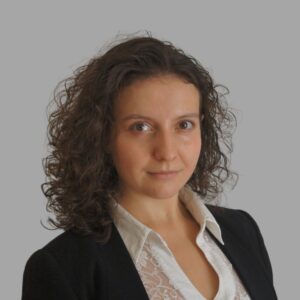
Kostantsa Rangelova
Global Electricity Analyst, Ember
Kostantsa Rangelova joined the Ember Global Insights Team to help spearhead the global green electricity transition through insightful data-led analysis. Kostantsa brings her in-depth expertise on global energy markets and her policy advocacy experience to foster a fact-based international public debate about the fast-changing global electricity transition. Prior to joining Ember, Kostantsa worked as a Senior Energy and Climate Analyst at CSD, a European public policy institute, and was leading the Downstream research team at JBC Energy, an independent energy market research centre in Vienna.
Tibor Schaffhauser, Senior Climate Policy Advisor, Green Policy Center
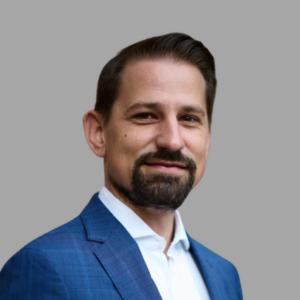
Tibor Schaffhauser
Senior Climate Policy Advisor, Green Policy Center
Tibor Schaffhauser, with over 10 years of experience in international climate and development topics is the founding member of Green Policy Center, a Hungarian sustainability think tank. Tibor throughout his career has focused on international climate issues. While working in different leadership positions in the public administration in Hungary, Tibor has been working on both national and international climate policy making and implementation and led the Hungarian delegation to numerous climate and environment conferences. Since then, Tibor has worked at the Energy Community Secretariat in Vienna as a Climate Policy Advisor and has supported Contracting Parties in their national policy planning, such as the development of National Energy and Climate Plans. In 2020, Tibor was among the founding members of Green Policy Center, a green think tank and advisory, where among others, Tibor has contributed to several studies, reports and policy proposals, worked on public awareness campaigns, led on different projects on net zero banking or climate change and security, among others. Tibor has also supported both the Czech and the Hungarian Council Presidencies, and contributed to the successful outcomes at COP27 and COP29.
Thea Uhlich, Policy Advisor, Germanwatch
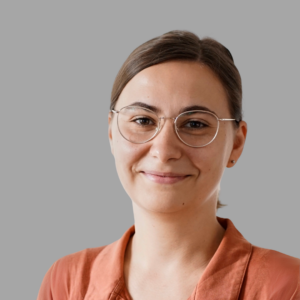
Thea Uhlich
Policy Advisor, Germanwatch
Thea Uhlich is a Policy Advisor for Low-Carbon Strategies & Energy in the field of international climate policy at Germanwatch, a German environment and development organisation. She is co-author of the Climate Change Performance Index (CCPI). Each year, the CCPI tracks and compares the climate change mitigation performance of 63 countries and the EU.
She previously studied social sciences and geography in Cologne and Freiburg.
Q&A
Chair
Nolan Theisen, Senior Fellow for Energy and Climate, Slovak Foreign Policy Association

Nolan Theisen
Senior Fellow for Energy and Climate, Slovak Foreign Policy Association
Nolan Theisen is Senior Researcher at the Slovak Foreign Policy Association with nearly ten years of experience in Central and Eastern Europe energy and climate policy issues beginning as a research associate at the Budapest-based Regional Centre for Energy Policy Research (REKK). He holds a master’s degree in international economics from the University of California, San Diego Global Policy and Strategy program. His current areas of focus center on the clean mobility transition and development of Pannonian geothermal energy. Mr. Theisen is also Project Lead with the Slovak Electric Vehicle Association (SEVA).
Speakers
Katarína Augustini, Acting Director, Institute of Economic Analyses, Ministry of Economy of the Slovak Republic
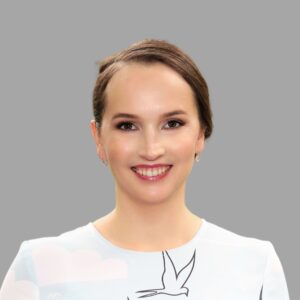
Katarína Augustini
Acting Director, Institute of Economic Analyses, Ministry of Economy of the Slovak Republic
Katarína Augustini currently manages the IHA analytical unit at the Ministry of Economy of the Slovak Republic. She primarily deals with strategic and conceptual projects and analyses, including the development of geothermal energy in Slovakia. She was the founding CEO of INVIA.SK, CleverFarm and Trivi. She has a wide range of experience from e-commerce, location intelligence, accounting to precision agriculture.
Matej Hotovčin, Department of Just Transformation, Ministry of Investments, Regional Development, and Informatization of the Slovak Republic

Matej Hotovčin
Department of Just Transformation, Ministry of Investments, Regional Development, and Informatization of the Slovak Republic
Matej Hotovčin has been working for almost two years in the Just Transition Department at the Ministry of Investments, Regional Development, and Informatization, overseeing the implementation of the Just Transition Fund within the Program Slovakia. With over a decade of experience managing publicly funded investment and research projects, he focuses on clean energy, research, development, and innovation. He is involved in the "Clean Energy Support in the Košice Basin" project, which aims to bring clean geothermal energy to Košice with 56 million euros in funding and a total investment of almost 100 million euros. Additionally, Matej is part of preparing a long-term strategy for supporting geothermal energy in Slovakia within the framework of interdepartmental cooperation, which aims to set more favourable conditions for geothermal energy from the source to its use.
Ronald Karko, Chairman Association for Geothermal Energy in Slovakia
Gábor Molnár, Managing Director, Arctic Green Engineering Services
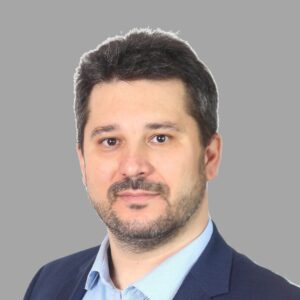
Gábor Molnár
Managing Director, Arctic Green Engineering Services
Gábor Molnár is a project manager and designer of geothermal energy projects in Hungary, Europe, and worldwide. He joined Mannvit in 2008, and started to work at the headquarters in Reykjavík, Iceland. His engineering tasks included general building and geothermal heating projects in Iceland and later in Hungary. In the last 15 years, Gábor has participated in geothermal energy utilization projects – both direct heat use and electricity production – as senior designer, construction manager, and project manager. He was the overall project manager of the development of the first Hungarian geothermal power plant in Tura. Gábor was the Managing director of Mannvit Kft from 2019. From 2023, he is the Managing Director of Arctic Green Engineering.
Annamária Nádor, Senior Geologist, Supervisory Authority for Regulatory Affairs of Hungary (SARA)

Annamária Nádor
Senior Geologist, Supervisory Authority for Regulatory Affairs of Hungary (SARA)
Annamária Nádor is currently the Chair of the Geo-Energy expert group of the European Geological Surveys and also the Energy Priority Area coordinator of the EU Strategy for the Danube Region. She has more than 15 years of experience in deep geothermal systems, especially resource assessment, utilization and management strategies of transboundary geothermal reservoirs in Central Europe. She has been participating in numerous EU-funded geothermal projects and worked as project manager in several of them. She is the member of the international expert team elaborating the United Nations Framework Specifications (UNFC-2019) for geothermal energy. She was one of the initiators of the Hungarian geothermal risk mitigation scheme and the Hungarian Geothermal Information Platform – OGRE. Addressing the current energy crisis, she has been working on strategies on how to accelerate geothermal developments in Hungary.
Balázs Némethi, Head of department, Budapest Public Utilities Ltd
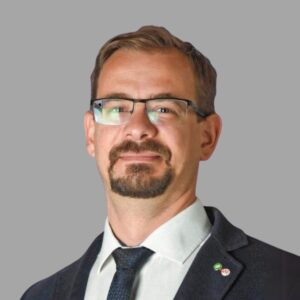
Balázs Némethi
Head of department, Budapest Public Utilities Ltd
Balász Némethi graduated at the Faculty of Mechanical Engineering of the Technical University of Budapest in 1997 as building services engineer and started working for the Budapest District Heating Co. Ltd. in 2000 as technical development engineer. In the first few years he dealt with district heating substation issues, delivering operational measurements. Later he was tasked with implementing regulation of the energy performance of buildings, especially the method of defining the primary energy factor of the district heating. Mr, Némethi is the leader of the Technical Committee of the Association of Hungarian District Heating Enterprises. As such he deals with the challenge of district heating and cooling efficiency and increasing the share of renewable and waste heat sources. He is also a member of the management of the District Heating Department of the Hungarian Scientific Society of Energy Economics, involved with organizing the annual DH-conference.
Martin Surán, Project Manager for Decarbonisation, ORLEN Unipetrol Slovakia
Chair
Oldřich Sklenář, Research Fellow, AMO

Oldřich Sklenář
Research Fellow, AMO
Oldřich Sklenář is an analyst at AMO, where he is a member of the climate team. He specializes in energy issues and greenhouse gas production. He graduated in Energy and Process Equipment from the Brno University of Technology and in Environmental Studies from Masaryk University. Additionally, he completed a study internship at Vrije Universiteit Brussel. He began his professional career as a designer in the energy sector. He then worked for several organizations, including non-governmental ones, focusing on the development of renewable energy sources and energy management. The largest part of his career has been spent in a managerial role in the development and production of electrical machinery. In addition to AMO, he also works as a consultant as part of the Climate Facts project.
Speakers
Viktor Bukovszki, Senior Consultant, Advanced Building and Urban Design

Viktor Bukovszki
Senior Consultant, Advanced Building and Urban Design
Viktor is a researcher in urban and technology studies at ABUD – Advanced Building & Urban Design and the Technical University of Munich. His area of study is the co-governance of environmental resources through the use of institutional technologies. This includes leveraging digitalization, AI platforms, or blockchain to enhance governance networks such as energy communities and democratized nature-based solutions.
Ján Lacko, Member of Executive Committee, Slovak association of sustainable energy (SAPI)
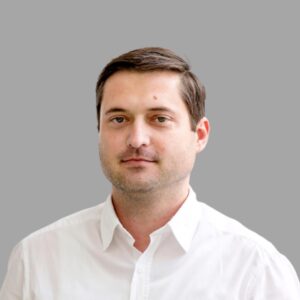
Ján Lacko
Member of Executive Committee, Slovak association of sustainable energy (SAPI)
Ján Lacko has worked in the renewable energy sector in various positions since 2006. As a project manager, he was involved in the first wave of wind power plant projects in Slovakia and subsequently participated in the construction of photovoltaic power plants. Later he was responsible for strategy, planning, development as well as acquisitions of green energy projects for the CEE and Western Balkans region in an international company. He was in charge of relations with key institutions such as public authorities, financial institutions and business partners. Currently, he mainly manages the preparation of wind power projects in Slovakia.
Ján has been an active member of the Executive Committee of the Slovak Association of Sustainable Energy (SAPI) since 2013, where he covers the wind energy agenda. His goal is to contribute to the better use of modern and innovative green technologies.
Thomas Podlesak, Director, WEB Windenergie AG
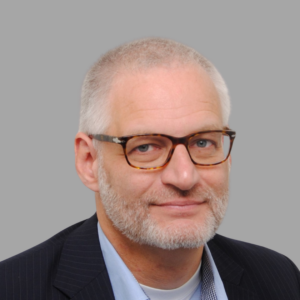
Thomas Podlesak
Director, WEB Windenergie AG
Thomas Podlesak is a director at the Slovak affiliate of Austrian power company WEB Windenergie AG. WEB has been active since 1994 in developing, erecting, and operating renewable energy power plants and is now active in 8 countries in Europe and North America where it operates wind parks, PV plants, and hydro power plants.
He has a legal background and has been working on projects in the field of renewable energy for more than 24 years. He focuses on the financing of renewable energy projects. He regularly publishes papers on financing issues regarding renewable power plants and is teaching law of corporate governance at the University of Vienna.
Q&A

Veronika Oravcová
CEEC Director, Slovak Foreign Policy Association
Veronika Oravcová is a Research Fellow at the Slovak Foreign Policy Association and a Research Assistant at the Department of Political Science at Comenius University in Bratislava. Her research interests are centred on energy transition and energy security in Central and Eastern Europe, she is a co-editor of From Economic to Energy Transition. Three Decades of Transitions in Central and Eastern Europe (Palgrave: London, 2021), several chapters on energy transition, and several papers on Slovak energy policy.
Please note the agenda is subject to change if required.

